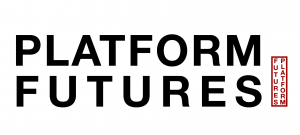Indonesia is the largest market in Southeast Asia and one of the most dynamic digital economies in the Asia-Pacific region.
The Ojo (motorbike taxi) is considered to be a cultural symbol and key mobility artery to many Indonesians. Today, platforms Go Jek and Grab, global Decacorns each valued over 10 US$ billion, have built an entire platform economy with a suite of on-demand mobility, delivery, e-commerce, and payment services around the Ojo. While these platforms change urban life in Jakarta they are also being changed by it. In Indonesia, local context and urban culture challenge western narratives and best practises of how platforms function and design their services. Case studies and observations from Jakarta are extremely relevant toward understanding the mobility platform economy today and how it may evolve in the future. In Indonesia and around the world.
In our series Platform Futures we speak to academics and experts to explore the potential and the risks of technology platforms in the Asia-Pacific region, especially the frictions that emerge in societies over-dependent on platforms.
In this module we speak to Rida Qadri, a PhD Candidate in Urban Information Systems at the Massachusetts Institute of Technology. In 2019-20, Rida made multiple visits to Jakarta where she spent time exploring the local gig economy, speaking to Go Jek and Grab drivers, collecting data, and learning first hand how the mobility and delivery economy is developing in Jakarta. Rida’s interests lie in empirically studying emerging technologies within non-western spaces, focusing on users traditionally rendered invisible in technological design. You can follow her on Twitter @qadrida.
We cover the following topics. You may choose to watch them in the sequence presented or jump straight to any chapter that interests you.
- Introduction to the key platforms in Indonesia
- Spending a day on a super app in Jakarta
- Go-Jek vs Grab
- Offline matching: A case study on how local context shapes global platforms
- The frictions of algorithmic matching
- Platformising driver knowledge and networks
- The relationship between gig workers and the platform
- Go Jek’s “special” relationship with the Indonesian State
- The Emerging regulatory landscape for mobility and delivery apps in Indonesia
1. Introducing the key platforms in Indonesia
What is the Indonesian digital economy like, and who are the key platforms?
2. Spending a day on a super app in Jakarta
What is it like to spend a day in Jakarta on Go Jek and Grab? What are the kind of services available?
3. Go-Jek vs Grab
How is Go-Jek viewed in Indonesia and how does their design and approach differ from Grab?
4. Offline matching: A case study on how local context shapes global platforms
In 2019 Grab introduced ‘Grab Now’ styled as an “offline matching service”. Passengers can select a pick-up and drop-off location on their phone and physically approach a nearby Grab driver who can choose to accept the ride.
5. The frictions of algorithmic matching
Algorithmic matching is at the core of how mobility and gig economy platforms work globally. What are the kind of frictions that arise when algorithms are used to navigate dense, complex urban spaces and communities?
6. Platformising driver knowledge and networks
Why do drivers build their own knowledge bases and networks, outside of the platforms, to navigate everyday challenges. Should these networks be incorporated into the platforms?
7. The relationship between gig workers and the platform
What is different about the way drivers in Indonesia organise and negotiate with platforms?
8. Go Jek’s “special” relationship with the Indonesian State
As the poster boy of Indonesia’s innovation and technology ecosystem, what is Go Jek’s relationship with the Indonesian State?
9. Emerging regulatory landscape for mobility and delivery apps in Indonesia
What are the key issues the Indonesian government is seeking to address as it prepares to introduce regulations that will impact the mobility and gig economy?
credit for the background image used in the video: “Gojek” by Ya, saya inBaliTimur is licensed under CC BY-ND 2.0
 Through a new program on Platform Futures, the Digital Asia Hub convenes a network of academics and experts studying multiple aspects of platforms, and to create a space for dialogue on opportunities, challenges, and governance best practices in the APAC context.
Through a new program on Platform Futures, the Digital Asia Hub convenes a network of academics and experts studying multiple aspects of platforms, and to create a space for dialogue on opportunities, challenges, and governance best practices in the APAC context.
For more information about Digital Asia Hub and Platform Futures visit www.digitalasiahub.org
- Exploring the Mobility and Gig Economy in Indonesia - March 17, 2021
